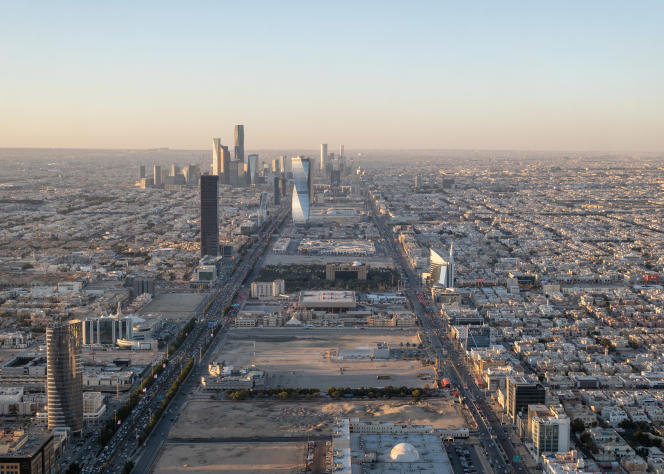In the moist heat of early June, Marianne and her friends, Lebanese expatriates in Saudi Arabia, sat down on the terrace of an Italian restaurant on Avenue Tahlia, the Champs-Elysées in Riyadh. Like them, many Saudis, and a few groups of foreigners, take advantage, on this weekend evening, of the cafes and restaurants of this shopping street, one of the few where it is pleasant to stroll in this city with airs of American megalopolis. Two hours by plane from there, in Dubai, the world city of the United Arab Emirates (UAE), their friends are preparing for a party, heavily alcoholic, by the sea. In Riyadh, the small group of Lebanese , in his twenties, will be satisfied with a good dish of pasta, washed down with a non-alcoholic cocktail – prohibited in the kingdom.
“When you come here after Lebanon or Dubai, it’s quite a culture shock. The climate is harsh, the city is huge, there aren’t many options for going out and it’s hard to make friends. There is no balance between work and private life”, confides Marianne. The young woman, however, did not hesitate for a second when the international advertising agency for which she worked in the Emirates asked her, in February, to open an office in Riyadh and to direct its activities, in full boom, in the kingdom. “You have to know where your priorities are. The salary, the experience, the responsibilities…: this is an opportunity that I would not have, at 26, neither in Lebanon nor in Dubai”she acknowledges.
Once closed in on itself, the kingdom is gradually opening up to the world. The country is emerging from the shackles of strict Islam under the effect of the reforms imposed by the 37-year-old Crown Prince, Mohammed Ben Salman, who came to power in 2015. Women now have the right to drive and travel freely. Tourists arrive. Life in Riyadh has been embellished with cinemas, music festivals and escape games. And, as part of the post-oil development plan, Vision 2030, massive investments have been made in real estate, tourism, energy, digital, health and telecoms. With success: between September 2021 and September 2022, 1.2 million foreign white-collar workers settled in the kingdom.
“The country’s economy is reinventing itself and international companies are rushing to take part, observes Faisal Durrani of real estate consultancy Knight Frank. The government wants to make Riyadh the new nerve center of the Middle East. Between Cairo and Mumbai [Bombay], there is plenty of room for a second globalized city. »
You have 69.29% of this article left to read. The following is for subscribers only.
